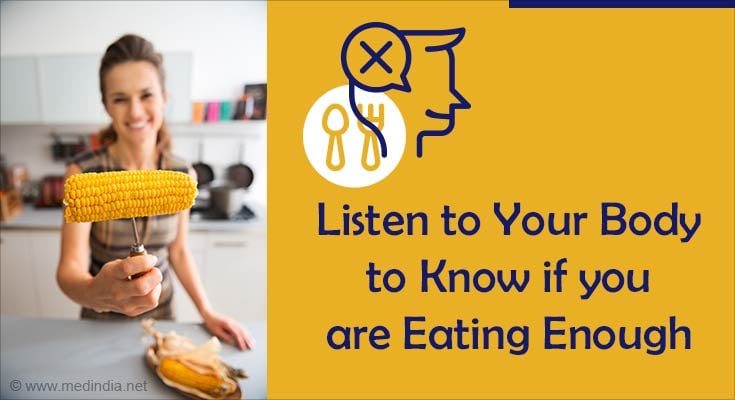- Inadequate intake affects weight, fertility, and immune system
- Recognize signs like anxiety, underweight, and fatigue as they could be a sign that you are not eating enough
- Consult a dietitian or healthcare provider for proper guidance
Insufficient consumption can impact your entire system, from your body weight to your fertility to your psychological well-being. Lena Beal, a therapeutic dietitian at Piedmont, reveals the most typical signs that an individual isn’t consuming enough: Understanding these indicators is crucial for maintaining overall health and vitality. Whether it’s inadequate nutrients or insufficient calories, recognizing these signs early on can help you make necessary adjustments to support your body’s needs (1✔ ✔Trusted Source
Inadequacy of Immune Health Nutrients: Intakes in US Adults, the 2005-2016 NHANES
).
12 Signs that you Might be Not be Eating Enough Food
1. Anxiety and Depression:
“Research indicates that insufficient eating can trigger prolonged spells of anxiety and depression among adolescents and adults,” Beal explains.
2. Being Underweight:
If your body mass index falls below 18.5, you might be underweight. Being underweight escalates the risk of malnutrition, developmental issues, infertility, bone fractures, osteoporosis, anemia, heightened risk of surgical complications, and a compromised immune system.
3. Constipation:
“Reduced waste production to form stool leads to sluggish movement of food through the GI tract,” Beal notes. Signs of constipation include having three or fewer bowel movements per week, small and hard stool, or difficulty in passing stool.
4. Difficulty Losing Weight:
“Inadequate consumption can impede weight loss efforts,” she remarks. “Insufficient intake to meet daily requirements can slow down metabolism as the body enters conservation mode.”
5. Fatigue:
“A certain calorie threshold is necessary for basic bodily functions,” Beal explains. “Most individuals need at least 1,000 calories per dayâmore if they’re physically active. Falling below that threshold can result in fatigue.”
6. Feeling Cold:
Insufficient calorie intake can lower body temperature.
7. Frequent Hunger:
“Various studies demonstrate that appetite and food cravings surge in response to calorie limitations,” she says.
Advertisement
8. Hair Loss:
“Our bodies prioritize vital functions like heart and lung activity,” says Beal. Insufficient nutrients for hair growth can lead to hair loss.
9. Infertility:
“Our reproductive health is governed by a complex system,” she adds. “Inadequate calorie intake can disrupt hormone balance, hindering pregnancy.”
Advertisement
10. Mood Swings:
Research indicates that calorie restriction can cause moodiness and irritability.
11. Sleep Disturbances:
Calorie restrictions can result in sleep disruptions, poor sleep quality, and difficulty falling asleep.
12. Weakened Immune System:
Inadequate nutrient intake weakens the immune system, making it harder to fight infections. Frequent illness or prolonged recovery times may indicate a dietary issue.
“There are times when our eating habits fluctuate, and that’s normal. But if you notice these symptoms persisting over time and forming a pattern, seek assistance.”
Reference:
- Inadequacy of Immune Health Nutrients: Intakes in US Adults, the 2005-2016 NHANES – (https://pubmed.ncbi.nlm.nih.gov/32531972/)
Source-Medindia










